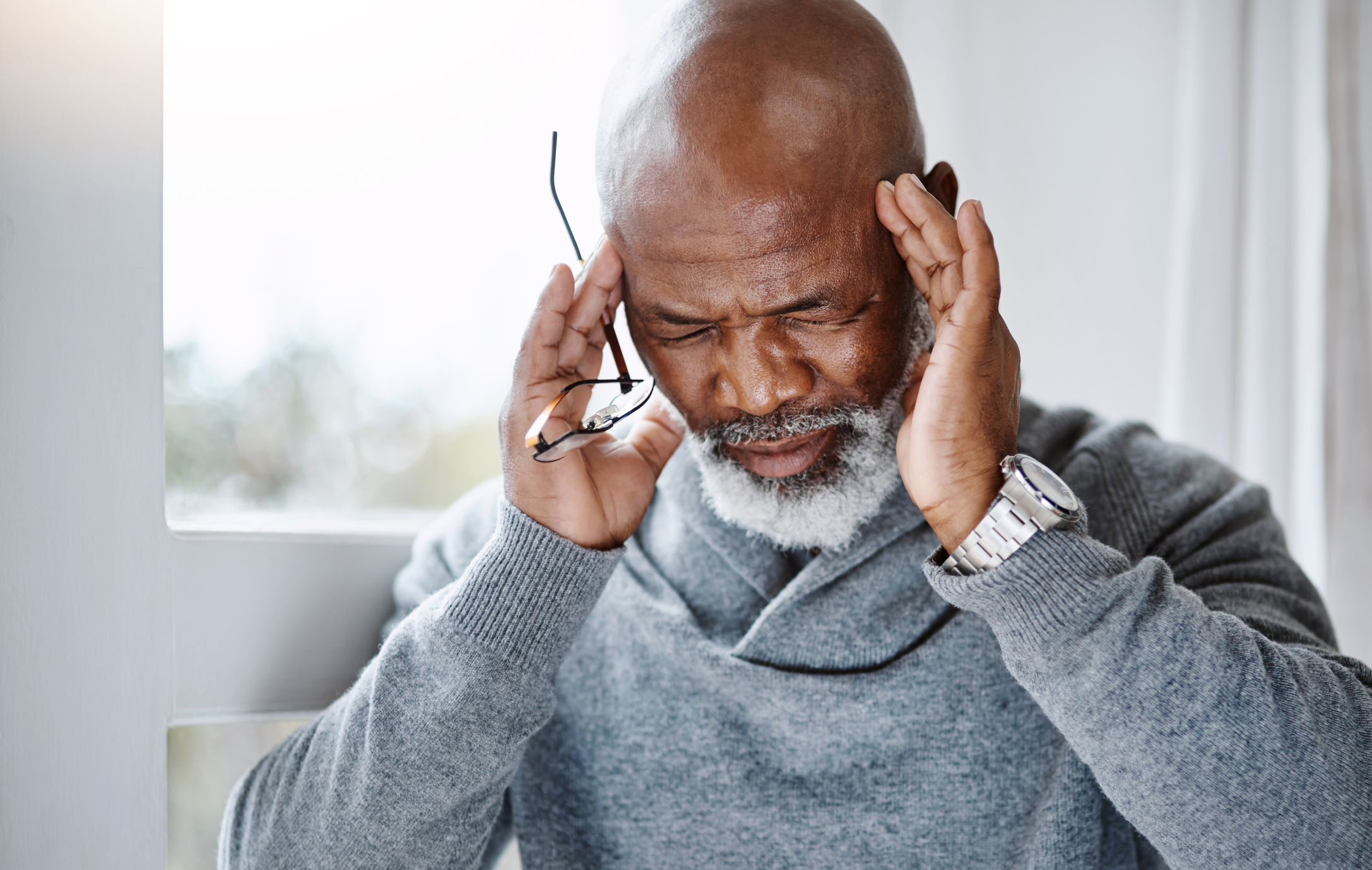
Everyone gets the occasional headache. The pain usually passes with some rest or over-the-counter medicine. But if your headaches are severe and last for several hours or even days at a time, it is probably a sign you suffer from migraines. A migraine is an extreme headache that is usually accompanied by other symptoms like nausea and sensitivity to light or sound.
Migraines are the number one reason patients come in to visit neurologists like Dr. Eric Cohen at Summit Health. Nearly 38 million Americans suffer from migraine attacks each year. Migraines can be extremely debilitating, and many individuals have difficulty finding relief.
Dr. Cohen says his patients often describe the pain as pounding, pulsing, or throbbing. Generally, these headaches occur on both sides of the skull, but sometimes the discomfort is located in just one area. When people have migraines, they typically like to lie in a dark, quiet room. Other symptoms, he describes, include yawning, mood changes, constipation, and neck stiffness.
“Individuals with migraines should not suffer in silence. When recurrent headaches are disruptive to the regular activities of daily living, require a person to miss work, visit the emergency room, or use large amounts of rescue over-the-counter medications, then it is time to see a neurologist,” says Dr. Cohen. “There are many treatment options available today from a variety of medications to numerous lifestyle changes and alternative therapies that can help provide comfort and improve quality of life.”
Most people with migraines have about two to four episodes each month. There may be a period of time when these headaches become more frequent, or you experience none at all. Migraines are one of the most common reasons for missed work and school days.
Anyone can develop migraines; however, they are three times more common in women than men. They generally start before the age of 40 — sometimes as early as adolescence.
There are different stages to a migraine attack. But not everyone has the same experience. Sometimes there are early warning signs in the days or hours before a migraine comes on, such as feeling unusually tired or irritable. Then, shortly before the attack, 1 in 4 people will have an aura — a visual or sensory clue like vomiting, a flash of light, or ringing in the ears. This aura means the actual migraine is about to begin. After the pain stops, it is common to continue to feel exhausted, confused, or generally unwell.
The cause of migraines is multifactorial, explains Dr. Cohen. There is thought to be a disruption in the brain that causes changes in both the blood vessels and the way the neurons talk to each other. Genetics play a part as well, since recurrent headaches tend to be more common in certain families. Hormones also play a role – many migraines in women are associated with their menstrual cycle.
There are also many known triggers of migraines. “Far and away the most common culprits are sleep disturbances and stress,” explains Dr. Cohen. Other triggers include certain foods, alcohol, caffeine, physical exertion, changes in the weather, and sensory stimuli like bright flashing lights or strong smells.
It is important to identify what causes your migraines. Keeping a journal can help you see if there are patterns associated with the onset of your auras or head pain.
There is no single blood test or scan that can definitively diagnose migraines. When individuals with recurrent headaches come to Dr. Cohen, he looks at their medical history, asks about symptoms, and conducts a neurological exam. Migraines may be confused with other disorders such as tension headaches that feel like a tight band wrapping around the head. “Clinical symptoms that suggest a migraine versus a tension headache include nausea, light and sound sensitivity, and exacerbation with physical exertion,” he explains.
Many treatment options exist for migraines. They generally fall into two different categories. Abortive medications like triptans are used to stop painful episodes when they occur, while preventative medications, such as blood pressure-lowering medications and antidepressants, have been found to help reduce the frequency of migraine attacks.
Dr. Cohen’s approach to treatment is different for every patient. “It really varies based on pain intensity and frequency,” he explains. “The number of headaches that are disruptive each month dictates if someone requires an as-needed medication or a preventative medication.”
It is common for people with migraines to rely heavily on over-the-counter pain relievers like ibuprofen or acetaminophen. These medications can provide short-term relief, but Dr. Cohen advises to be careful of overuse. When these drugs are taken too often, or for too long, they can lead to serious side effects like bleeding in the gastrointestinal tract.
Lifestyle changes and alternative therapies are also beneficial in treating and preventing migraines. “Addressing headache prevention in a holistic manner has the most positive outcome for patient satisfaction as well as long-term benefit,” says Dr. Cohen.
Stress, poor sleep, and excess weight can all predispose someone to developing migraines. Modalities like physical and behavioral therapy, chiropractic care, and acupuncture — that help individuals reduce anxiety, improve their quality of sleep, and minimize triggers — have all been found to be helpful solutions.
